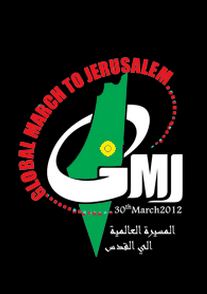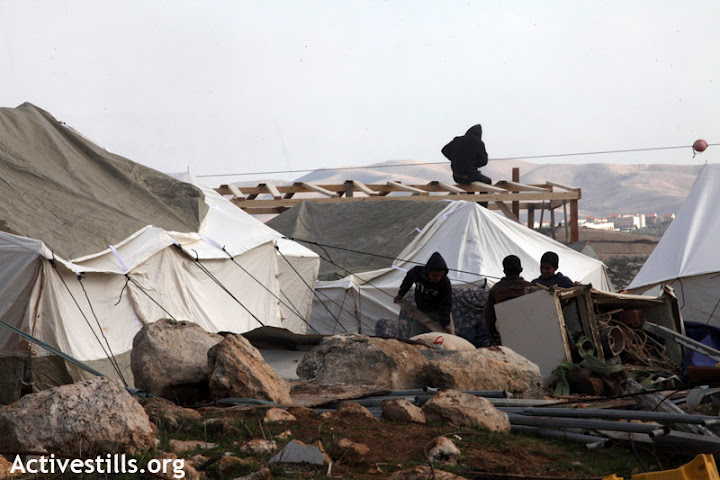-
A call from Palestinians in Palestine to join the Global March to Jerusalem
29 January 2012 | Global March to Jerusalem Join us as we intensify our struggle against forced exile and the system of Israeli apartheid on Land Day 2012. We Palestinians have been ethnically cleansed and uprooted from our lands starting in the 1948 Nakba (Catastrophe) which resulted in the creation of the millions of […]
-
Israel to demolish two houses near Bethlehem
28 January 2012 | WAFA News Agency Israeli forces delivered home demolition notices to two Palestinian homeowners in al-Ma’sara, a village south of Bethlehem, under the pretext that they were built without a permit in an area under full Israel control, said head of the village council Samir Zawahra on Saturday. He said Israeli soldiers […]
-
To exist is to resist! Rebuilding homes in Anata
27 January 2012 | Chroniques de Palestine How do you continue your life after your home had been demolished? How do you cope with the uncertainty of having a roof for your children and protect them from the cold and rain? On the 23rd January, 6 homes of the community of the Arab al Jahalin, […]
Action Alert An Nabi Saleh Apartheid Wall Arrests BDS Bethlehem Bil'in Cast Lead Demonstration Denial of Entry Ethnic Cleansing Farmers Gaza Global Actions Hebron House Demolition International law Israeli Army Jerusalem Live Ammunition Nablus Ni'lin Prisoner Ramallah Rubber-coated steel bullets Settlement Settlers Settler violence Tear-Gas Canister Video


